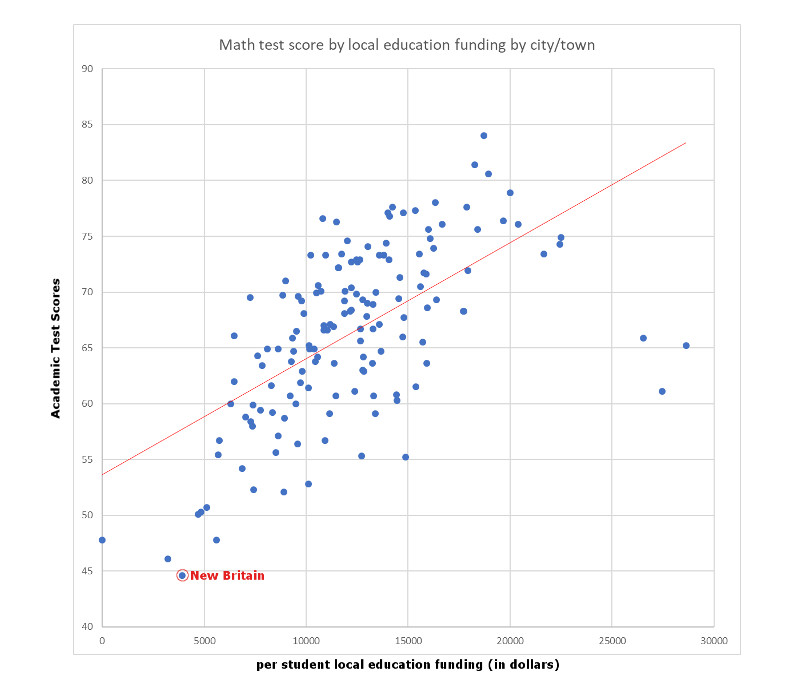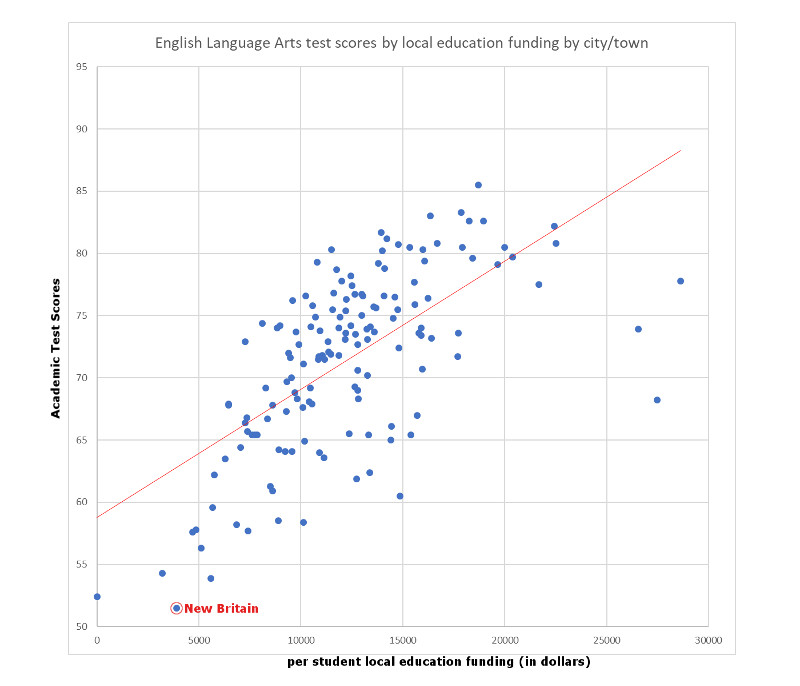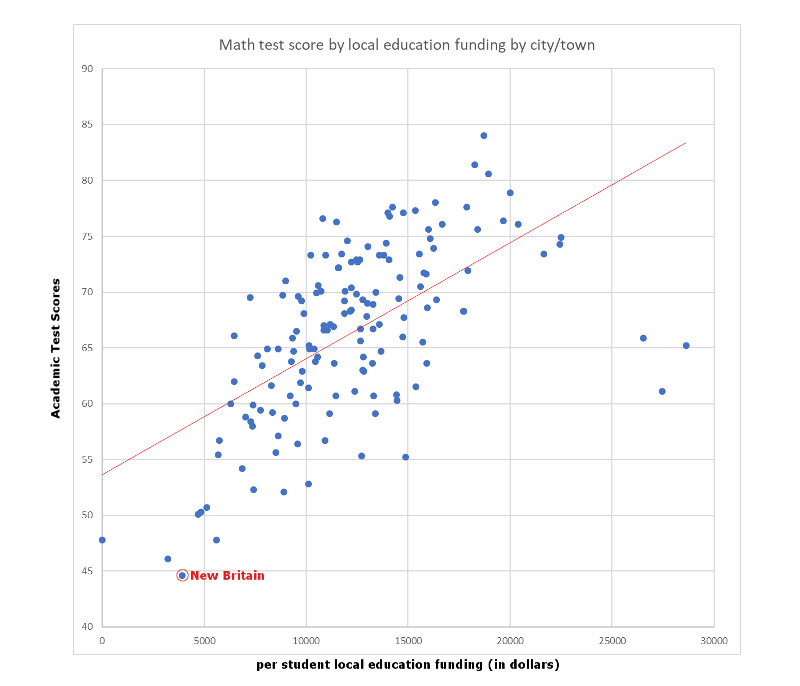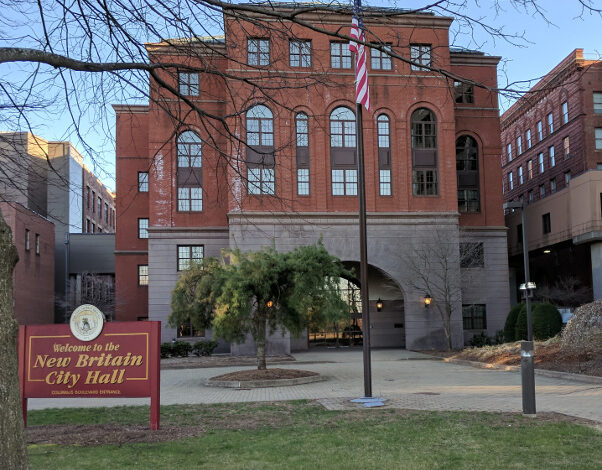With academic success of students apparently affected by the level of local schools funding, New Britain is in the position of being at the bottom of both.
Information on local school funding and how closely it correlates to state academic test scores has become a major local issue in the wake of years of low local support for education under Republican Mayor Erin Stewart. New Britain scored last in both math and English language arts test scores among all the city and town school districts in the 2017-2018 state academic test scoring, the most recent year in which the scores have been published.
New Britain also spends among the lowest of the all of the cities and towns on educating its students. New Britain had the third lowest net current education expenditures per student in the state, according to 2015-2016 date from the State Department of Education that were published by the Connecticut School Finance Project.
But New Britain has the fifth highest state Education Cost Sharing grant funding of all of the cities and towns in the state, relying on that state funding for its per-student expenditures more than any other city other city or town, other than Bridgeport and possibly Hartford, according to the 2015-2016 state Education Department data.
New Britain’s own local commitment to education, on the other hand, is among the lowest municipal school districts in the state. Only Bridgeport allocated less local funding per student than New Britain in the 2015-2016 state data.
Even when ability to pay is taken into account, New Britain still appears to allocate the second lowest among municipal school districts in the state. While, on average, cities and towns in Connecticut apparently spend 3.7% of their personal income in local support for their schools in 2015-2016, New Britain appears to have allocated only 2.8%. Again, only Bridgeport was lower.
Comparing the amount of local support for education, using the 2015-2016 data, to the most recent academic test scores appears to show a general correlation between how much a city or town provides in local funding for their schools and the test scores of the students in their schools. The comparison appears to show New Britain’s place near the bottom of both local education funding and test scores as part of a larger pattern, with New Britain near the low end of the scale.


Stewart has come under heavy criticism for repeatedly freezing the amount of money that the city allocates locally to its schools, despite millions of dollars in increases in funding for City Hall departments.
Stewart’s budget plan for the upcoming year would reportedly transfer a state education grant of perhaps $3.1 million to the school system. While that would appear to represent her own largest single year increase for city schools, her previous years of flat-funding would appear to leave her support for local schools with less than a one percent per year increase over the six years of her administration.
A $3.1 million one-time increase would appear to still leave New Britain’s local support for its schools far behind the state average, even the average amount based on ability to pay. Increasing local city education support to match the statewide average of 3.7% personal income would appear to take more than a $14 million increase in city support for New Britain’s schools. And that would only match the state average from three years ago, leaving New Britain far behind the benchmarks that appear correlated with higher educational outcomes.
Stewart’s budget for the upcoming budget year that begins on July 1, 2019 is presently being considered by the City Council. The Council has a June 9th deadline to consider action Stewart’s plan.
While the Council is technically able to approve a budget different than the Stewart’s plan, she can veto it. Unless the Council can overturn the mayor’s veto by the deadline in the City Charter, the Stewart’s budget takes effect without the Council’s approval.
Since “overriding” a veto takes the support of ten of the fifteen Council members, and there are nine Democrats and six Republicans, Stewart and the Council Republicans can block the Democrats from approving their own budget plan if Stewart disagrees with it. That is effectively what happened last year, when city funding New Britain schools was frozen.




